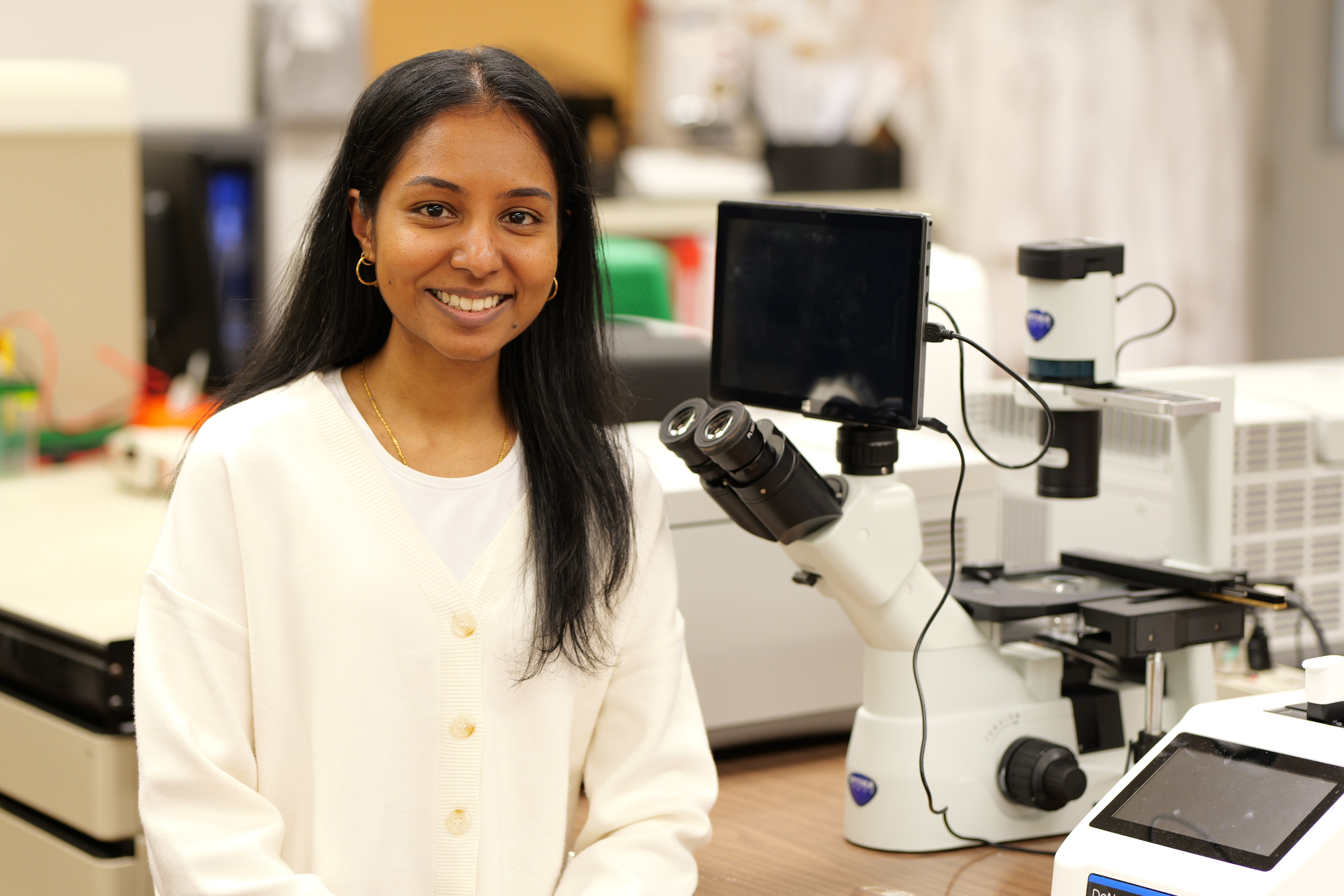
Emerging Researchers - Nijani Nagaarudkumaran
Exploring the Intersection of Aging and Inflammation in Ocular Surface Health
By Elizabeth Drolle
Operations and Relations Manager, Network for Aging Research
“Aging is a significant risk factor for ocular surface disease”
Nijani Nagaarudkumaran, a PhD candidate in Dr. William Ngo’s lab in the School of Optometry & Vision Science, is making waves with her groundbreaking research on ocular surface health. Specializing in corneal epithelial cell biology, Nijani is focused on unraveling the complex relationship between aging, autophagy, and inflammation, which could transform how we understand and treat age-related ocular diseases.
Autophagy, the process by which cells clear damaged macromolecules and organelles, naturally declines with age. This decrease is thought to contribute to the accumulation of cellular damage that characterizes aging. Nijani’s innovative approach involves chemically impairing autophagic activity to model the effects of aging on human corneal epithelial cells (HCECs). By observing how these “aged” cells respond to various stressors, particularly hyperosmotic stress—a model for dry eye disease—she aims to shed light on the inflammatory responses and mechanisms associated with the aging ocular surface.
“Impaired autophagy is associated with both aging and chronic inflammatory diseases,” Nijani explains. “By understanding how aging corneal epithelial cells respond to inflammatory stimuli, we can uncover novel compounds that act as therapeutics to modulate biological aging.”
Inflammation plays a role in maintaining ocular health, requiring a balance of pro-inflammatory and anti-inflammatory cytokines to regulate inflammation. Nijani’s research focuses on identifying how impaired autophagy influences these inflammatory responses under diseased conditions, such as dry eye disease.

Her findings could pave the way for the development of targeted therapies that promote healthy aging of the ocular surface. These therapies could improve the quality of life for aging populations by addressing the root causes of inflammation and cellular dysfunction to promote the healthy aging of the ocular surface.
As Nijani points out, “Aging is a significant risk factor for ocular surface disease” and as such, her research stands at the forefront of efforts to promote healthy aging through innovative scientific exploration. Her work not only holds promise for advancing treatments for ocular surface diseases but also contributes to the broader understanding of how aging impacts cellular function and inflammation.
Nijani’s dedication to understanding the intricate mechanisms of cellular aging and inflammation underscores her role as an emerging expert in the field of ocular surface health. As she continues her studies, her contributions are poised to make a lasting impact on ocular health and aging research.
Nijani holds a BSc in Biomedical Sciences from the University of Waterloo and an MSc from the School of Optometry & Vision Science, where she conducted research at the Centre for Ocular Research and Education (CORE) under Dr. Lyndon Jones. She later worked as a researcher at CORE before beginning her PhD under Dr. William Ngo. For inquiries about her research, she can be reached at nnagaarudkumaran@uwaterloo.ca.
If you are interested in nominating a student for NAR's Emerging Researchers series, please contact us at nar@uwaterloo.ca